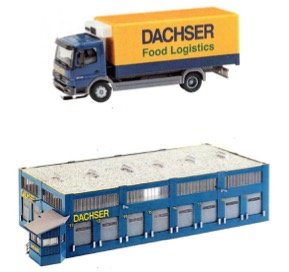Use of trademarks on toy cars – a never ending story?
The use of registered trademarks on miniature products – in particular toys – has been the subject of several cases in the past. The German Federal Court of Justice (BGH) has now added another facet to the legal discussions surrounding the potentially infringing utilization of third-party trademarks. The judges expanded the scope of recent decisions to cases in which the use on the miniature toys somehow mirror the reality and denied a trademarks infringement. Even certain alterations on the miniature toys are accepted as long as the relevant aspects of the real use is reflected.
The legal issue usually arises when toy manufacturers wish to distribute miniature products of existing products. In the past, most cases surrounded replicas of existing car models which did not originate from the car manufacturers but used the registered trademarks of the car manufacturers visible on the original cars. The Opel-Blitz II judgement of the Federal Court of Justice (Bundesgerichtshof – BGH) regarded this lawful as long as the use reflects the use in reality and the distribution and advertisement for such products considers certain limitations (Judgement of 14 January 2010, file number: I ZR 88/08 – Opel-Blitz II, based on prior decision of CJEU of 25 January 2007, file number: C-48/05 – Adam Opel).
BGH expands existing case law
Germany’s Federal Court of Justice has now expanded the past case law to products which feature not only the trademarks of the car models but additional trademarks which may be visible on the original product. In a recent decision it ruled that the use of registered trademarks on miniature toys does not cause a trademark infringement as long as the use mirrors the reality. If the trademarks appear in reality on such products, consumers will not expect that the miniature version originates from the trademark owner or that the use has been licensed. The judges also declined that the use would take unfair advantage of the distinctive character or reputation of the trademark or infringe upon Unfair Competition Law. They extended their considerations to other miniature products (a miniature warehouse in this specific case). This evaluation shall apply despite certain differences between the use in reality and the use on the miniature products (Judgement of 12 January 2023 – recently published, file number: I ZR 86/22).
Miniature toy needs to reflect reality
The case concerned trademarks of the logistics company DACHSER. The company had complained about the use of its DACHSER trademarks on a toy car and a miniature warehouse which appeared as follows:

The 1st level of jurisdiction confirmed a trademark infringement. Upon appeal, a trademark infrigment was denied and the Federal Supreme Court now confirmed the appeal judgement.
Certain differences are acceptable
In its opinion, the judges pointed to the fact that consumers realize that the products are drawn from reality. There is an established tradition within the toys industry to offer and distribute accurate reproductions of goods that appear in reality including trademarks. Consumers are aware that such products do not originate from the trademark owners. Such use may therefore not cause a trademark infringement if the trademarks are only used on the product itself and the use somehow reflects the reality. Minor alterations are acceptable as long as the relevant aspects of the real use are reflected.

